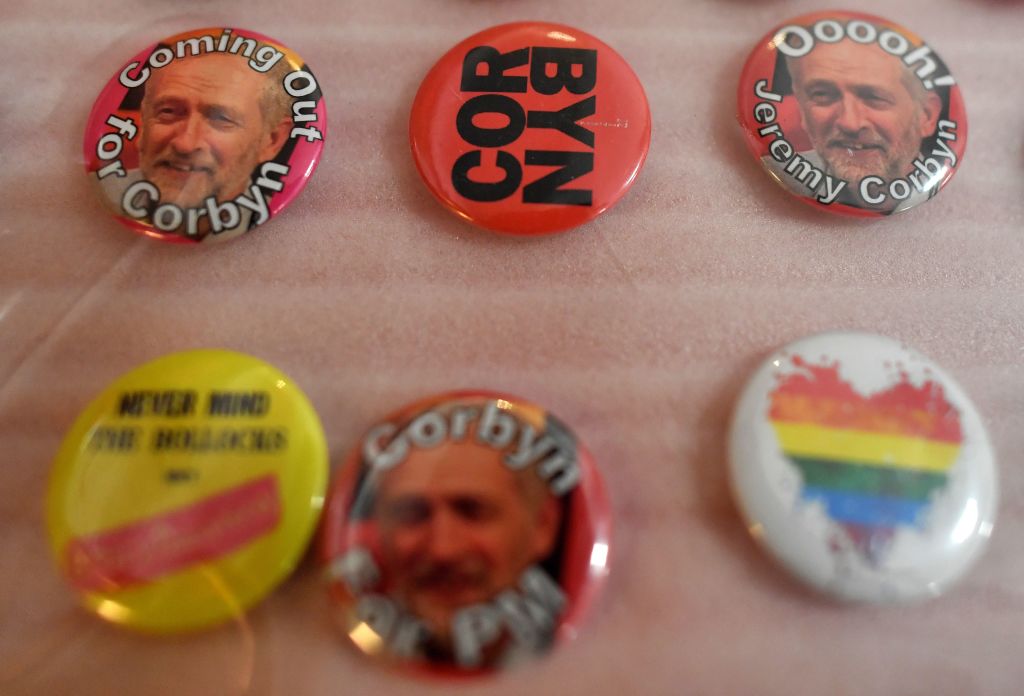Among the first things I did when moving to the UK from Australia was sign up to three British institutions: Arsenal football club, the NHS and the Labour party.
Sure, Jeremy Corbyn’s party is further to the left than the Australian iteration. But following Labour’s surge in the 2017 general election there was something alluring about the party. It was offering wholesale change, by improving public services, increasing the minimum wage and scrapping student tuition fees. These policies sat well with my millennial sensibilities. And like it or loathe it, Labour’s grassroots campaign back then radiated a palpable sense of excitement about the party’s future.
A year on from arriving in the UK, I’m prepared to admit I was wrong – and the latest incarnation of Labour’s Brexit policy is the final straw. Despite what the party claims, it is clear Labour now speaks for the few, not the many; for those embracing a dangerous combination of identity politics and revolutionary Marxism. This realisation led to me binning my Labour membership a few days ago. It seems I’m not alone in making this decision: reports suggest more than 100,000 people have left the party in the past 18 months or so. This exodus is hardly a surprise.
Complaints of anti-Semitism by members, MPs and councillors are so commonplace that the Equality and Human Rights Commission is now investigating the party. And this week’s Panorama on Labour’s anti-Semitism problem made for desperately uncomfortable viewing. The continual unwillingness to take disciplinary action against many of these people – except for when there is intense public or media scrutiny – is a sign of incompetence at best, or malice at worst.
Many are infuriated by the party’s confused stance on Brexit, which has led to extreme policy inertia and a leakage of support to the Liberal Democrats and Greens. After more than a year of dragging his feet, Jeremy Corbyn has now announced that the party supports a second referendum. But there is still a large caveat. In a statement, Corbyn said the party would only support remain in a second referendum if the other options are a “no deal or a Tory deal that does not protect the economy and jobs”. Some Labour members who want Britain to remain in the EU might be frustrated by this confusing muddle, but it can hardly be considered a shock, coming from a lifelong Eurosceptic. And Brexit aside, others still have been turned off by Magic Grandpa’s fondness for recalcitrant foreign powers over his own country.
All of these issues played a part in my decision to leave Labour. But there is also a core deformity that was the main reason behind opting to bin my membership. The party has largely become a place where there is no space to debate ideas or hold a difference of opinion from the waves of lobotomised Corbynistas. I saw evidence of this on a small scale when I attended London Young Labour’s AGM and local branch meetings. It is clear from the decision of moderate Labour MPs to jump ship that this is a wider problem too. Labour is a party and a forum where debate and dissent is dead: Israel, bad; capitalism, bad; “woke” ideologies, good; Corbyn, infallible. The left is always morally righteous by Labour’s measure. Yet this is an attitude that leads to a diminishment of empathy. It also creates a febrile environment where anti-Semitism and totalitarian tendencies are allowed to fester.
Earlier this year, I spoke to a former frontbench Labour MP who said he deeply pitied younger followers of Momentum and the Labour party. He described the people running the pro-Corbyn pressure group as the ones who were a part of the Trotskyist Militant tendency in the 1980s; “older, but no wiser”, was his verdict. He didn’t regard the younger followers as bad people, but pointed out that their enthusiasm for change had been moulded by the wrong sort of comrades.
He is right: younger members of Labour are being sold a socialist utopian vision by these party elders. Not only are they being led down a false and quixotic path politically, but the door has been opened for many of them to wallow in the toxic playground of identity politics and self-victimisation.
Playing the politics of envy on a grand scale is naturally going to filter down and manifest itself in people’s wider lives as demonstrated by many of these young Labourites. But personally, I would rather be politically homeless than align myself with this group any further.






Comments